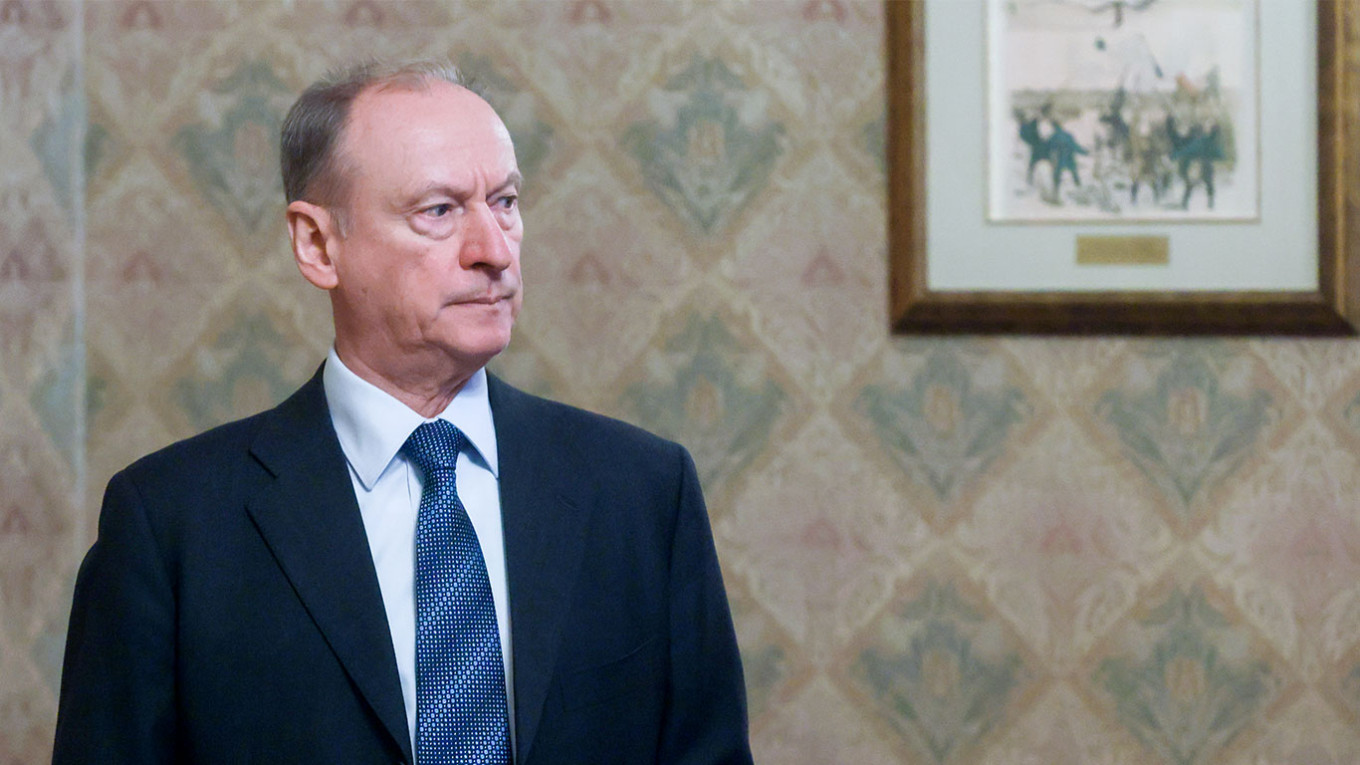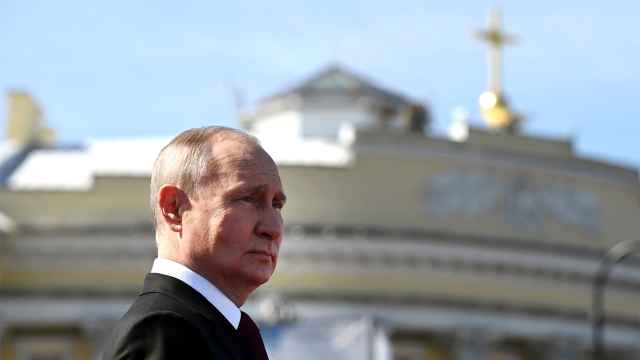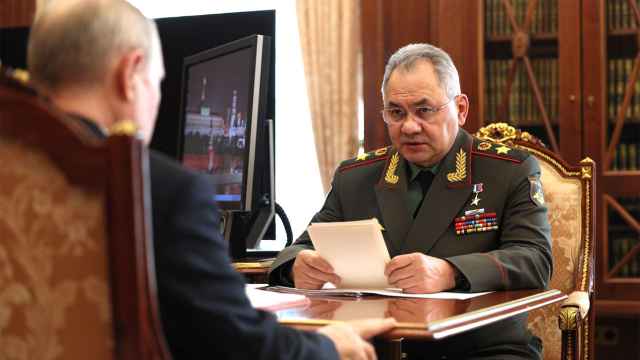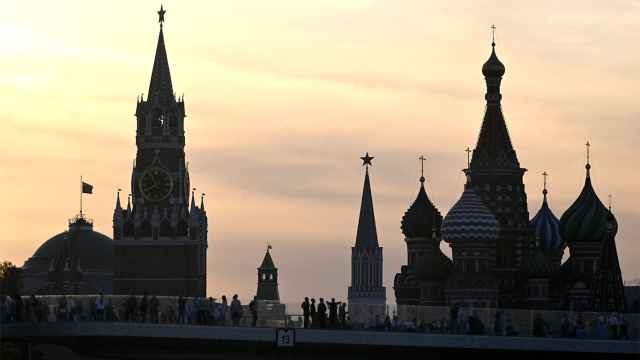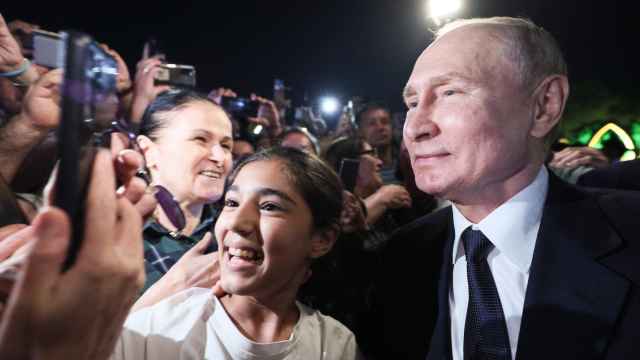While President Vladimir Putin’s recent inauguration was not followed by a major reshuffle in the Kremlin, there were some important personnel changes. Nikolai Patrushev was moved from head of the Security Council to the much narrower role of presidential aide, which looks like a demotion for a man once considered the most powerful security official in Russia. What should be made of his appointment?
Within the Russian political system, different people in Putin’s entourage and in the Kremlin more broadly play different roles. Some are technocrats with highly specialized knowledge. Belousov’s experience as a skilled economic manager will equip him to oversee Russia’s enormous military spending, which officially amounts to 6.7% of GDP.
Others, like Shoigu, bank on their absolute loyalty to Putin. As a political heavyweight, he could not have been disposed of easily, so he was moved to another important role.
Others are ideologues who articulate a coherent worldview that serves both as a blueprint for propaganda and as a basis for Putin’s thinking. One such person is Yuri Kovalchuk, a media manager and longtime friend of Putin’s who reportedly had his ear in the months leading up to Russia’s invasion of Ukraine in 2022. Patrushev is another.
A former KGB officer, Patrushev served as director of the FSB from 1999 to 2008, and as head of the Security Council from 2008 to 2024. Before 2014, his infrequent press interviews resembled bureaucratic reports on the various activities of the Security Council. His anti-Western rhetoric at this time was quite moderate and limited to criticism of NATO expansion. However, since 2014, his interviews have become more frequent and their tone (as well as content) has changed dramatically.
Patrushev began to paint a picture of the West as Russia’s eternal enemy, bent on its total destruction, saying they “would prefer Russia not to exist at all”. He saw the West as being behind everything from global terrorism to the so-called color revolutions in countries neighboring Russia. As the years passed, he went further and further down the conspiracy rabbit hole, expressing support for the golden billion theory and suspecting the U.S. of having engineered the Covid-19 pandemic.
The change in Patrushev’s rhetoric reflects Russia’s situation after 2014. It is unlikely that his conspiratorial views developed suddenly. Rather, he finally felt that it was possible at that time to express them publicly. Before then, imperial nationalism with a paranoid, conspiracy streak was present in the Kremlin, but not dominant. It had not yet fully gripped Putin,
Within the political system, Patrushev's Security Council was an important but not pre-eminent institution, sharing influence with the ‘civilian’ part of the presidential administration as well as the government and Putin's oligarchic entourage. After 2014, however, conspiracy nationalism took center stage, and the Security Council rose to become the most influential political institution in Russia. Putin himself began to express views similar to Patrushev’s.
In this context, does Patrushev’s demotion mean that the “paranoid style” of Russian politics is finally giving way to something new? I believe the opposite is the case. In the years before and after the invasion of Ukraine, Putin fully assimilated Patrushev’s thinking into his own rhetoric. His recent speeches on the “centuries-old Russophobia of Western elites” are indistinguishable from Patrushev’s interviews. In effect, there is no need to keep Patrushev as the ideologue-in-chief, as that was a role Putin assumed himself.
During his 24 years in power, Putin has fulfilled many functions. He acted as an arbiter in intra-elite conflicts, created a gigantic pyramid of patronage and material rewards, and used PR stunts to bolster the regime’s legitimacy. He interacted with countless heads of state, and commanded Russian troops in wars from Africa and the Middle East to Europe and the Caucasus.
Now, however, all of these activities are subordinated to Putin’s all-encompassing ideology complete with a sense of Russia’s historical mission and an image of the West as Russia’s eternal enemy and a nefarious force behind the world’s many ills. This grand ideological vision shapes Putin’s entire thinking.
Putin clearly prefers to keep Patrushev and other conspiracists, such as Kovalchuk, close. He needs them to reiterate and confirm what he already believes in. However, he no longer needs a special institution – the Security Council – to articulate an ideological vision of Russia’s national interests as he took on this job. With Shoigu at the helm, the Security Council will likely become another technical institution, similar to the Russian government – meeting regularly and overseeing every aspect of Russia’s war effort in conjunction with Gerasimov’s General Staff and Belousov’s defense ministry.
For Patrushev himself, however, Putin may have reserved a special role, as his new and ridiculous title – a presidential aide for shipbuilding – indirectly suggests. Behind this façade, there might be a task of interacting with the Western national security establishment (something Patrushev has done before). Putin would trust Patrushev to do this job precisely because of their shared ideological thinking.
Furthermore, Patrushev remains in Russian politics as the head of a family clan. His son Dmitry has assumed the position of deputy prime minister – the highest position yet occupied by a child of Putin’s close associate. Since the Kremlin’s grand ideological vision requires a new nobility to implement it, the conspiracists may remain in charge of the Kremlin long after Putin and Patrushev are gone.
A Message from The Moscow Times:
Dear readers,
We are facing unprecedented challenges. Russia's Prosecutor General's Office has designated The Moscow Times as an "undesirable" organization, criminalizing our work and putting our staff at risk of prosecution. This follows our earlier unjust labeling as a "foreign agent."
These actions are direct attempts to silence independent journalism in Russia. The authorities claim our work "discredits the decisions of the Russian leadership." We see things differently: we strive to provide accurate, unbiased reporting on Russia.
We, the journalists of The Moscow Times, refuse to be silenced. But to continue our work, we need your help.
Your support, no matter how small, makes a world of difference. If you can, please support us monthly starting from just $2. It's quick to set up, and every contribution makes a significant impact.
By supporting The Moscow Times, you're defending open, independent journalism in the face of repression. Thank you for standing with us.
Remind me later.



